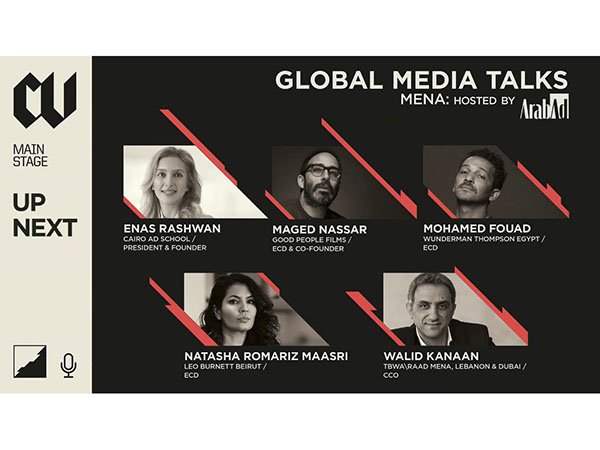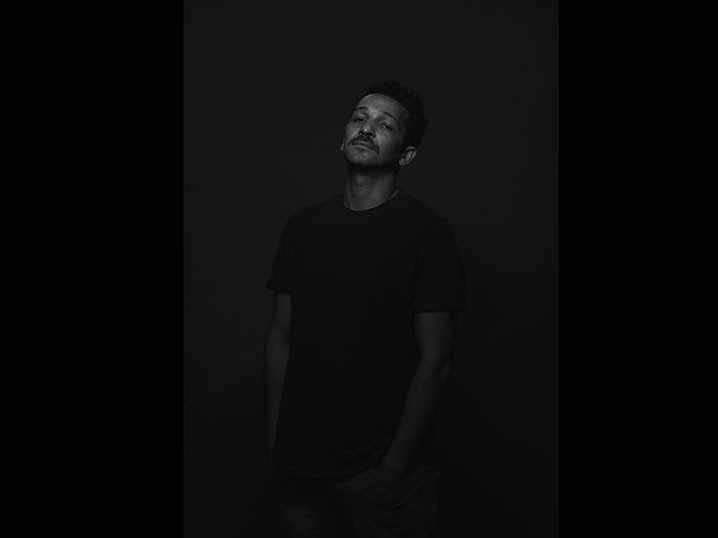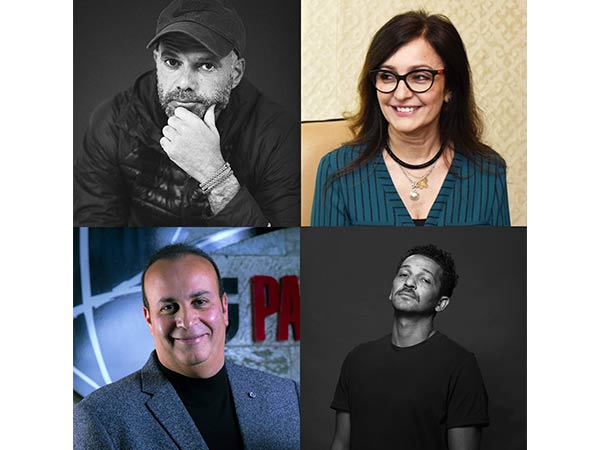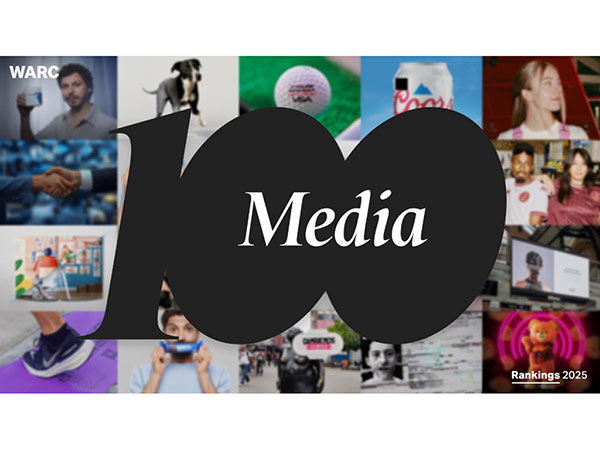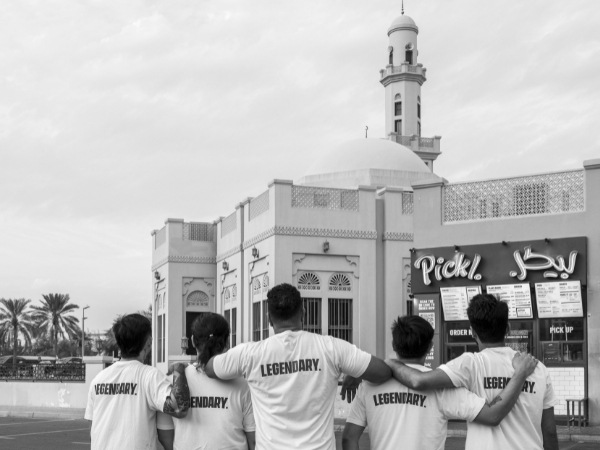News - Advertising
Creative Leaders Talk Trends at ArabAd’s ‘The State of Creativity: MENA’ Panel at Creative Week 2021
by Ghada Azzi
June 21, 2021

Three of the region’s top creative leaders met last week for an in-depth conversation about “The State of Creativity: MENA” panel hosted by ArabAd, as part of The One Club for Creativity’s global Creative Week 2021.
Featured on the panel were Mohamed Fouad, ECD, Wundermen Thompson Egypt, Cairo; Walid Kanaan, CCO TBWA\RAAD, Lebanon and Dubai; and Natasha Romariz Maasri, ECD, Leo Burnett Beirut. The session was moderated by Enas Rashwan, president of The One Club-Cairo chapter and founder/president, Cairo Ad School.
The panel was a lively discussion of current creative trends in MENA, the region’s best work of the past year and other topics of interest to the agency and creative world.
“As a global organization producing an international festival, we wanted to make sure to provide a spotlight on creative excellence in the Middle East,” said Kevin Swanepoel, CEO, The One Club. “We were honored to have ArabAd as our media partner to bring this conversation to our global audience.”
The talk was designed to shine a spotlight on creativity in the MENA region and discuss industry trends, various issues and challenges.
Enas started by asking how do creatives stay inspired and manage to keep their team inspired as well, specially as she addressed Natasha and Walid who live in Lebanon, a country that has been in a spiral downturn. For Natasha, this was no easy feat, although she’s by nature an enthusiastic person who gets excited when she comes across great ideas, and this enthusiasm is obviously contagious. Nevertheless, by staying active and working on some good campaigns not only for brands but for noble causes is what kept their brains functioning, reminding them of the power they hold as creative to use their creativity as a fuel to do good and try to move things for the betterment of society.
Walid acknowledged that 2020 was different for the world over yet it was particular for Lebanon—a tragic year.” It is in this challenging context that we had to keep it up,” he says, “even though all the reasons in the world were gathered and could have refrained us from moving forward.”
However, the work kept rolling. Here Walid mentions the Dubai Lynx awards that recently took place where he says the jury was quite surprised to stumble upon a great deal of brilliant ideas and campaigns coming out from Lebanon and created for Lebanese brands, and by Lebanese agencies. “And if this proves anything, well it proves that in this part of the world,” added Walid, “not only Lebanon but Egypt as well, and all countries located in this hot zone, they have resilience under their skin. This is why we keep pushing for big campaigns, big stories, big insights that can travel the world and impact people.”
As to how to keep the team inspired, Walid explains that he keeps pushing them out of their comfort zone—specially during the pandemic when teams had to work remotely. And this wasn’t an easy work frame, “as creative usually work in herd style, better teaming up, brainstorming together,” he says. He also reckons they were extremely productive during the pandemic but not necessarily extremely creative.
For Fouad, it is imperative that the creative team meets every once in a while, like every two weeks to share ideas and anything that comes to mind, as this is a healthy process for good ideas to pop up. It is also done on regular basis through What’s App group, or Zoom calls of course.
To keep inspired, Fouad says he needs to stay updated, push curiosity to the max like a child, try to learn from anything, literally anything happening around him. He keeps abreast of everything that’s going on worldwide as a way of forecasting trends. He also reads, watches movies, specially old Arabic movies as this keeps him connected to the culture he knows best with a great source of references and insights. Alexa also helps a lot in his life, says Fouad.
On the impact of the pandemic on the agency, the team, and the work in general, Natasha acknowledges that at the beginning of the crisis, they were somehow affected by the Covid-19 disruption and this whole new concept of working remotely through Zoom, Teams etc. and not be able to meet up on daily basis to exchange ideas, so it affected creativity and broke the dynamic they were used to. But they ended up somehow adjusting and it started inspiring different sort of executions, as they did a total Zoom web series for UNICEF New York, which will be used as a learning experience for different markets.
For Walid, it was the distance that they were trying at first to combat the most by creating social events - Halloween, Christmas etc, to remind the team and every talent in the agency that they are all still together despite the distance. And the nice and positive part about it all—whether for clients or the agency team- Walid notes, is that apps like Zoom and Teams allowed them to enter into the intimate life of every individual. So it wasn’t anymore a client in a conference room but a client sitting in his living room and this sense of intimacy has brought people closer together, creating some kind of a bond and a sense of unity he really enjoyed despite the gloominess of the overall experience.
Same goes for Fouad who admits having struggled at the beginning of the pandemic but finally once they accepted their fate being as such, they managed to adapt. He adds that the onset of the pandemic saw everyone in the creative industries “scramble and find alternative ways to get things done in this new normal. Yet, over time we found that the tools and the infrastructure already exists to allow us to adapt, stay creative and productive." However, he notes "the creative work got affected from a production perspective more than qualitative."
Moreover, Walid stated there was a learning out of this crisis that remote work shouldn’t be considered as a no-no, since it proved its efficiency. Since COVID-19 accelerated its popularity enormously, it is here to stay. And TBWA\Raad has introduced this formula across its network where the team is allowed to have a one-day remote work. But he personally encourages physical connectivity, despite the remote work hype, specially for the creative force at his agency.
Natasha also believes in human physical contact, close proximity, energy field, body language, as all these factors play in favor of the birth of creative ideas.
At Wunderman Thompson Egypt too, the working from home system has been adopted as well, says Fouad. “This past period has also allowed the team to refresh and restart. It was an exercise in pushing ourselves and ultimately it made us stronger creatives. I think we’ve truly entered a period of creative transformation,” he concludes.
You may watch the entire panel here.


